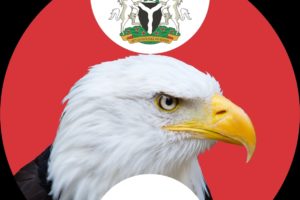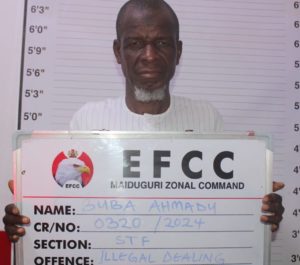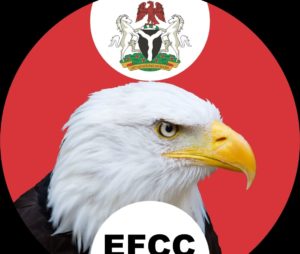The Economic and Financial Crimes Commission (EFCC) has successfully secured the conviction of three illegal Bureau-de-Change operators in Maiduguri, Borno State. The verdict was delivered by Justice K. Dagat of the Federal High Court, resulting in one-year imprisonment sentences for each of the defendants. This judgment marks a significant achievement for the EFCC in its ongoing efforts to combat financial crimes in Nigeria.
The convicted individuals, Buba Ahmadu Aliyu, Mohammed Mustapha, and Muhammad Zarami, were charged with operating illegal Bureau-de-Change businesses without the necessary licenses from the Central Bank of Nigeria (CBN). The defendants were brought before the court on Wednesday, July 10, 2024, by the EFCC’s Maiduguri Zonal Directorate and were subsequently arraigned on separate one-count charges.
Charges and Legal Proceedings
Each defendant faced charges for carrying out financial activities without a CBN-issued license, a violation of Section 57 (1) and (2)b, and punishable under Section 57 (5)b of the Banks and Other Financial Institutions Act, 2020. The specific charges highlighted the illegal nature of their operations, which contravened the regulatory framework designed to maintain the integrity of Nigeria’s financial system.
For instance, the charge against Buba Ahmadu Aliyu read: “That you, Buba Ahmadu Aliyu, sometime in May 2024, within the jurisdiction of this Honourable Court, did carry on other financial business without a license issued by the Central Bank of Nigeria, contrary to Section 57 (1) and (2)b, and punishable under Section 57 (5)b of the Banks and Other Financial Institutions Act, 2020.” Similar charges were read to Mohammed Mustapha and Muhammad Zarami, to which they all pleaded guilty.
Sentencing and Implications
Upon the defendants’ guilty pleas, the prosecution counsel, A.B Aliyu, urged the court to convict and sentence the individuals accordingly. In contrast, the defense counsel, H. Basharu, pleaded for leniency, asking the court to temper justice with mercy. After considering the submissions, Justice Dagat sentenced each defendant to one year in prison. However, the court provided an option of a N100,000.00 fine (One Hundred Thousand Naira) for each convict.
The conviction of these illegal operators underscores the EFCC’s commitment to upholding financial regulations and deterring unlawful financial practices. By securing these convictions, the EFCC aims to send a strong message to other potential violators about the serious consequences of engaging in illegal financial activities. The successful prosecution also highlights the importance of regulatory compliance in maintaining the stability and credibility of Nigeria’s financial sector.
EFCC Seek Strengthening Of Whistleblower Protections for Effective Anti-Graft Measures
The Executive Chairman of the Economic and Financial Crimes Commission (EFCC), Mr. Ola Olukoyede, emphasized the need for enhanced protection for whistleblowers to strengthen Nigeria’s anti-graft war. Speaking at the Inter-Agency Task Team (IATT) meeting in Abuja on July 11, 2024, he highlighted that the whistleblowing policy, initially lauded at its 2016 launch, now requires significant modifications to regain its momentum. According to Olukoyede, the primary step towards a more effective policy is establishing a comprehensive legal framework that ensures robust protection for whistleblowers, particularly insiders within governmental bodies who reveal internal malfeasance.
Olukoyede noted that the current weaknesses in the whistleblowing policy could be mitigated by implementing clear guidelines and streamlined procedures for reporting corruption and rewarding whistleblowers. He argued that a well-structured protection law would shield whistleblowers from persecution or punishment, fostering a safer environment for reporting corruption. “A sustainable whistleblower programme should be anchored on a moral foundation in which citizens provide information as a matter of patriotic duty, not propelled by a desire for reward. Whistleblowing should be organic, not driven by pecuniary considerations,” Olukoyede asserted, emphasizing the need for a morally driven approach to whistleblowing.
Calls for Legal Frameworks and Clear Guidelines
In addition to advocating for stronger legal protections, Olukoyede underscored the importance of establishing clear-cut guidelines for the whistleblowing process. He pointed out that the channels for reporting corruption and the procedures for determining and disbursing incentives should be well-defined to enhance the policy’s effectiveness. “We need clear-cut guidelines on reporting channels, including determining agencies to receive the whistleblower information,” he stressed. Olukoyede called on Nigerians to view whistleblowing beyond financial incentives, urging them to see it as a patriotic duty essential for national integrity.
The need for preventative measures was another critical point raised by Olukoyede. He emphasized that whistleblowing should not be merely reactive but should focus on preventing the embezzlement of public funds. “We should be more interested in whistleblowing that prevents the stealing of public funds rather than the recovery of funds. Once funds are looted, the entire loot may never be recovered,” he said. This proactive approach, according to Olukoyede, would ensure that corruption is nipped in the bud, reducing the need for post-facto recoveries which are often incomplete.
Broader Government and International Support
The Attorney General of the Federation and Minister of Justice, Lateef Fagbemi, SAN, echoed Olukoyede’s sentiments, emphasizing the government’s commitment to the anti-graft fight. In his keynote address, Fagbemi highlighted the necessity of protecting whistleblowers to ensure the efficacy of anti-corruption efforts. “The present administration is committed to the fight against corruption and the government is putting up mechanisms to block loopholes in MDAs to ensure that graft is prevented,” he stated, reaffirming the administration’s resolve to tackle corruption comprehensively.
Supporting these initiatives, Adeniran Adeyemi, Statistician-General of the Federation and Chief Executive Officer of the National Bureau of Statistics, underscored the importance of protecting whistleblowers during his Goodwill Message. Citing findings from the “Third National Corruption Survey in Nigeria,” Adeyemi pointed out that there has been a noticeable improvement in anti-corruption efforts, with an increase in the number of citizens refusing bribes and reporting corrupt practices. He stressed that these positive trends underscore the need for continuous support and legal protection for whistleblowers to sustain the fight against corruption.
Internationally, Danilo Campisi, Country Director of the United Nations Office on Drugs and Crimes (UNODC), praised Nigeria’s commitment to combating corruption. He emphasized the importance of prioritizing prevention and encouraging behavioral changes, especially among the youth. Campisi highlighted that protecting whistleblowers through the confidentiality of information is crucial to ensuring their safety and the effectiveness of anti-corruption measures. His comments underscored the global support for Nigeria’s anti-graft initiatives and the need for comprehensive strategies to protect those who expose corruption.
Table of Contents
Discover more from OGM News NG
Subscribe to get the latest posts sent to your email.














